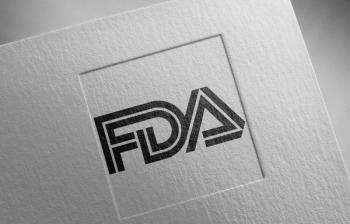
Unmet Needs in mBC Treatment Landscape
Dr Kettle provide insights into unmet needs surrounding treatment of metastatic breast cancer.
Ryan Haumschild, PharmD, MS, MBA: Dr Kettle, we heard [about] a lot of great things that are happening. What are some of the still unmet needs in metastatic breast cancer, and how can we as pharmacists help with addressing them?
Jacob K. Kettle, PharmD, BCOP: Great question. Certainly a lot of unmet needs remain, and that’s one of the daunting things but also the great things about being in the world we’re in [and] the practice we’re in.… We continue to always push for better, even though sometimes that’s difficult to do, even emotionally. Unmet needs—the thing I see as really our biggest challenge is, how do we operationalize all of the intake that we have? How do we make the most sense out of the data that we have? How do we make the best decisions for patients? How do we get enough health care providers in the right place to make the right decision at the right time? How do we address social determinants of health that cause health disparities? How do we make sure patients can come in for clinic and be monitored? Certainly there are clinical limitations, especially after we get past the first and second line, though there [are] lots of emerging therapies. Particularly I’m interested in utilizing targeted therapies and, as was mentioned, continuing to kick chemotherapy down the line. Those are great. But to me, the biggest unmet need, and one of the biggest challenges, is, how do we take all of these great innovations medically and figure out a way to apply them all efficiently and seamlessly and timely? Because there’s only so much time in the day, only so much staff that we have. Our patients come to us with limitations as well, and they have their own barriers. Syncing all of these things up [is a challenge]. I’d summarize our biggest unmet need as, how do we maximize and operationalize all the gifts that we have now? It’s an embarrassment of riches in some sense. It’s very hard to keep up. It’s very different from how things were when I started in my career, when we had just a handful of options. Now it’s a matter of how we organize and utilize all these tools that we have.
Ryan Haumschild, PharmD, MS, MBA: Maybe the biggest takeaway that I heard you say is that unmet need really centers around…we have so many treatments now, how do we make sure people are utilizing them appropriately?... If there are genomic tests or precision medicine associated with it, how do we make sure that’s being utilized—not just in the academic setting where we’re doing the research, but to all community? How are we using all the tools in our toolbox to best take care of patients, to best monitor them, and give them the best chance at meeting their outcomes?
Transcript is AI generated and edited for clarity and readability.
Newsletter
Stay informed on drug updates, treatment guidelines, and pharmacy practice trends—subscribe to Pharmacy Times for weekly clinical insights.

























